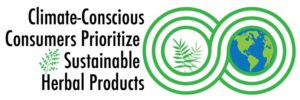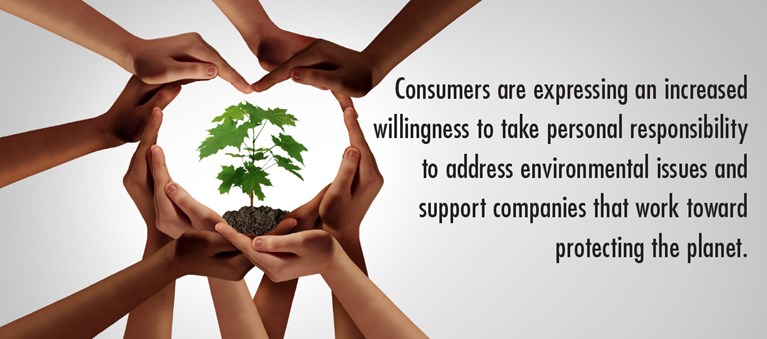Key points in article in HerbalGram 134
The recent article, “Climate-Conscious Consumers Prioritize Sustainable Herbal Products,” by Karen Raterman in ABC’s peer-reviewed journal HerbalGram, highlights key points from 2021 National Marketing Institute (NMI) and Hartman Group surveys on consumer behavior and sustainability. Below are some key takeaways. Read the full article (ca 3750 words, including references) here.
- The 2021 NMI report surveyed 3,000 US adults in October 2020. They found that 62% of surveyed consumers felt more personally responsible for protecting the environment than they have in the past. This is up from 49% in 2009, a growth of 27%.
- Forty-five percent of surveyed consumers indicated greater commitment to buying products from companies that follow environmentally friendly and sustainable practices.
- NMI researchers were particularly interested in the impact of the COVID-19 pandemic on consumer attitudes about sustainability. Rather than dropping sustainability priorities for personal health concerns during the pandemic, they found that consumers used the time to reflect on their purchasing behaviors and their impact on the environment.
- Respondents to the NMI report noted that being sustainable and practicing green behaviors helped give them a sense of control and purpose.
- The NMI report found that 18- to 39-year-olds are significantly more likely to make personal sacrifices than older generations.
- NMI study showed increasing concern about sustainable agriculture, particularly among millennials.
- “In addition, there appears to be evidence that the COVID-19 pandemic may have ignited a stronger conviction towards environmental protection and sustainable behaviors, as the fragility and interconnectedness of the human and planetary condition has been made more apparent than ever,” the article notes.
- “While more consumers are taking responsibility… a significant number of the NMI respondents said they believe that corporations, retailers, and the US government should be leading the way with respect to protecting the environment, but believe they are falling well short of that goal.”
Companies Need to Lead the Way – and Can do More

- “In addition, there appears to be evidence that the COVID-19 pandemic may have ignited a stronger conviction towards environmental protection and sustainable behaviors, as the fragility and interconnectedness of the human and planetary condition has been made more apparent than ever,” the article notes.
- “While more consumers are taking responsibility… a significant number of the NMI respondents said they believe that corporations, retailers, and the US government should be leading the way with respect to protecting the environment, but believe they are falling well short of that goal.”
- The Hartman Group’s Sustainability 2021: Environment and Society in Focus surveyed a nationally representative sample of 2,000 US adults and found that consumer thinking about sustainability is becoming more complex. Core sustainability consumers (about 40% of sustainabity-conscious consumers) make connections not only to social and environmental issues but also across these issues, understanding the impacts of plastic pollution on human health, for example. These consumers are motivated to make purchases that benefit workers and farmers as well as the environment and themselves.
- The 2021 Hartman report noted that one-third of younger generations see their purchase decisions as a more powerful way to effect change than voting or community engagement.
- According to the Hartman report, sustainable purchasing choices are often tied with supporting local businesses, buying in bulk, and seeking out composting. They also found that a gap still exists between aspirations and actions. Interestingly, this gap is widest when knowledge about the actual impacts of a purchase are not clear. We created the Sustainable Herbs Program to address this knowledge gap. Learn more about responsible and ethical sourcing in the botanical industry here.
The full article contains much more detail about how specific companies approach sustainability and the critical relationship between investing in responsible sourcing and quality. Read the complete article here.


Comments